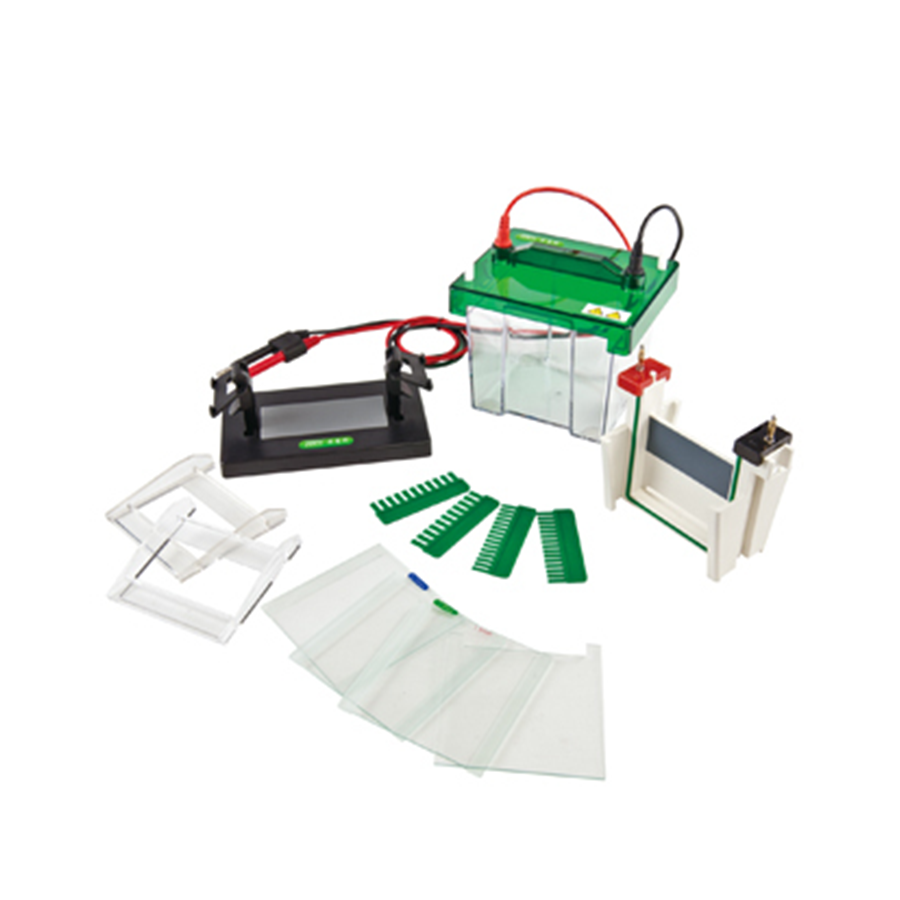Electrophoresis is a technique that uses electric fields to separate molecules based on their size and electrical charge. Its application extends beyond biological sciences and is being utilized in various fields, such as medicine, to provide precision in diagnostics and, consequently, improve clinical outcomes. Each molecule carries a charge, which is detected by the applied electric field. From there, molecules move through the medium, and the distance they travel is determined by their size and charge.
Thanks to the collaborative efforts and dedication of prominent scientists and physicians, electrophoresis has evolved significantly in recent decades. With ongoing research and innovations, the technique has been modified to achieve more precise analyses with smaller sample quantities. This advancement in science has a significant impact on medicine, as well as on other areas where diagnostic precision is required.
We understand that you need equipment that delivers maximum value to your laboratory. We invite you to visit https://kalstein.de/category-product/laboratory-line/electrophoresis/, to immerse yourself in our universe of cutting-edge technology equipment. Our prices are competitive and accessible, we combine the convenience of online shopping with the guarantee of an exceptional product. Because you deserve the best, we create and offer top-tier laboratory equipment. Make your choice today, where science comes to life. https://kalstein.de/
Design of Electrophoresis
The design of electrophoresis systems encompasses several aspects. One is the type of support used to load samples, which can be paper, cellulose acetate, polyacrylamide gels, or agarose. Another aspect is the type of buffers and electric field system employed. The selection of these depends on the nature of the molecules to be separated and the type of analysis desired.
An optimal design ensures the proper separation of different molecules based on their size and charge, increasing the precision of the results. This design minimizes interference and optimizes resolution, thereby improving diagnostic quality and promoting better clinical outcomes.
Types of Electrophoresis
Electrophoresis is classified into main types based on the methods used to separate molecules: gel electrophoresis, capillary electrophoresis, paper electrophoresis, and pulsed-field electrophoresis. Each has its own advantages, and the choice depends on the type of analysis required.
The different types of electrophoresis are suited to various nuances in biological and medical sciences. For example, gel electrophoresis is particularly useful for analyzing proteins and nucleic acids, while capillary electrophoresis is very effective in separating complex mixtures and quantitative analyses.
Applications of Electrophoresis
The applications of electrophoresis are varied and widespread. In medicine, it is used for studying genetic, infectious, and chronic diseases. It is also employed for drug detection, toxin analysis, and in forensic science for DNA sample analysis.
Electrophoresis has also made significant contributions in genomics and proteomics, enabling the identification and analysis of numerous genes and proteins. This advancement has allowed for greater diagnostic precision and the formulation of new, more targeted and personalized therapies, leading to improved clinical outcomes.
Better Clinical Outcomes with Electrophoresis
Advancements in electrophoresis have led to substantial improvements in clinical outcomes. Greater diagnostic precision enables more effective and targeted therapies. Physicians can now monitor disease progression at a molecular level and adjust treatments based on detected changes.
The importance of electrophoresis in improving clinical outcomes cannot be overstated. It has shifted the medical focus from treating symptoms to addressing the underlying causes of diseases, making medicine more effective and precise.
Challenges and Future of Electrophoresis
Although electrophoresis has revolutionized the fields of biology and medicine, there are still challenges to face. The continued miniaturization and automation of electrophoresis techniques promise to further enhance their efficiency and precision.
The future of electrophoresis is very promising. The trend is toward creating increasingly smaller and portable devices, allowing for use outside of conventional laboratories. These innovations will enable access to precise diagnostics not only in hospitals and laboratories but also in remote and hard-to-reach areas, expanding the reach of its benefits. With proper design and application, electrophoresis will continue to be a powerful ally in medicine and research, ensuring greater precision in diagnostics and better clinical outcomes.

